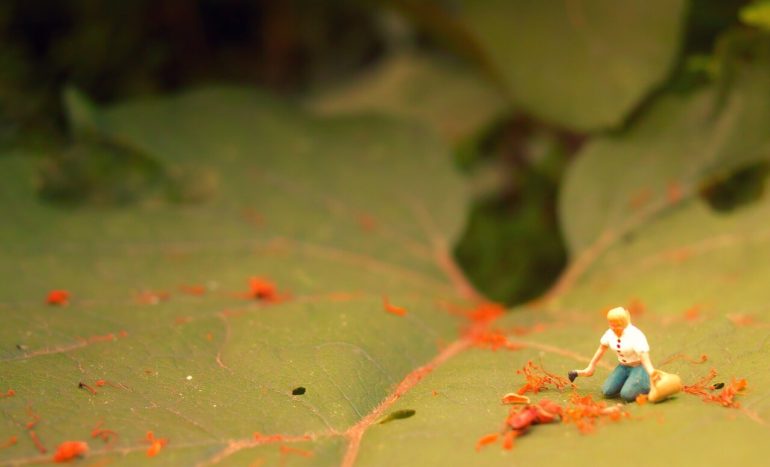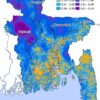Scientists and graduate students with minority identities who conduct fieldwork report being stalked, followed, sexually assaulted, harassed, threatened, having guns pulled on them and police called on them.
These issues threaten minority-identity researchers’ physical health and safety during fieldwork, while also affecting their mental health, productivity and professional development.
A paper on the topic, “Safe fieldwork strategies for at-risk individuals, their supervisors and institutions,” was recently published in the journal Nature Ecology and Evolution. The article—written by Amelia-Juliette Demery and Monique Pipkin, graduate students in the field of ecology and evolutionary biology—describes how peers, mentors, departments and institutions can all help to address these problems.
“When we solicited input from students in our department, we found that a lot of these personal experiences and the associated proactive measures that they took following those experiences were pretty universal and extended beyond just the color of someone’s skin,” Demery said.
The paper was originally intended as an internal document for the Department of Ecology and Evolutionary Biology, but feedback from department graduate student, postdoctoral and faculty reviewers encouraged Demery and Pipkin to widen the scope to apply more universally inside and outside of academia. The authors queried and received feedback from their department sources, and from sources at diversity and inclusion committees at the Cornell College of Agriculture and Life Sciences and the American Ornithological Society.
“Amelia Demery and Monique Pipkin have done such an important service to outline and explain strategies to keep field researchers safe, particular those who are at risk because of their minority identity,” said Jeremy Searle, chair and professor in the Department of Ecology and Evolutionary Biology. “We have to do everything possible to ensure individuals are not hindered from doing field research because of identity prejudice, and this paper is a really important contribution for ensuring that,” he said.
In their responses, researchers described feeling threatened based on their race/ethnicity, gender, sexual orientation, gender identity, religion and/or disability. Such experiences can also occur when American scientists travel internationally.
“Field safety is an issue for everyone,” Pipkin said. “There is a lack of general field safety training.”
In addition, such experiences take a toll on a scientist’s or student’s ability to do their work.
“If you have two graduate students, one may not perform as highly as another simply because they can’t collect as much data because they are trying to mediate issues of being a woman in the field alone, being a person of color in the field alone, and having to always look over their shoulder,” Pipkin said.
“It’s an immense emotional and mental strain,” Demery said.
These problems can be compounded, she said, by supervisors and advisers of different backgrounds who lack experiences of being ‘othered,’ and may respond with disbelief and skepticism.
Addressing these problems, Pipkin said, is everyone’s responsibility. Individuals should prepare themselves by notifying others where and when they are collecting data, and conduct research with others when possible. Peers may check in on lab mates when they know they are in the field and be prepared to get help in emergencies. And supervisors must educate themselves, understand the specific field risks their students face and prepare their researchers ahead of time.
On department and institutional levels, fieldwork safety presents systemic challenges requiring standardizing safety protocols, Demery said. Such measures can include: developing and mandating field safety, harassment and first aid training; training supervisors; evaluating institutional practices and removing barriers to entry in the sciences; understanding and addressing risks at specific field sites; and hiring diverse faculty.
Demery and Pipkin plan to continue leading discussions across campus, hold workshop seminars and webinars, and design a template for how others can lead conversations on fieldwork safety issues.
Intensive lab experiences and online learning during the COVID-19 pandemic
More information:
Amelia-Juliette Claire Demery et al, Safe fieldwork strategies for at-risk individuals, their supervisors and institutions, Nature Ecology & Evolution (2020). DOI: 10.1038/s41559-020-01328-5
Provided by
Cornell University
Citation:
Paper addresses fieldwork safety for minority scientists (2020, November 4)
retrieved 4 November 2020
from https://phys.org/news/2020-11-paper-fieldwork-safety-minority-scientists.html
This document is subject to copyright. Apart from any fair dealing for the purpose of private study or research, no
part may be reproduced without the written permission. The content is provided for information purposes only.



